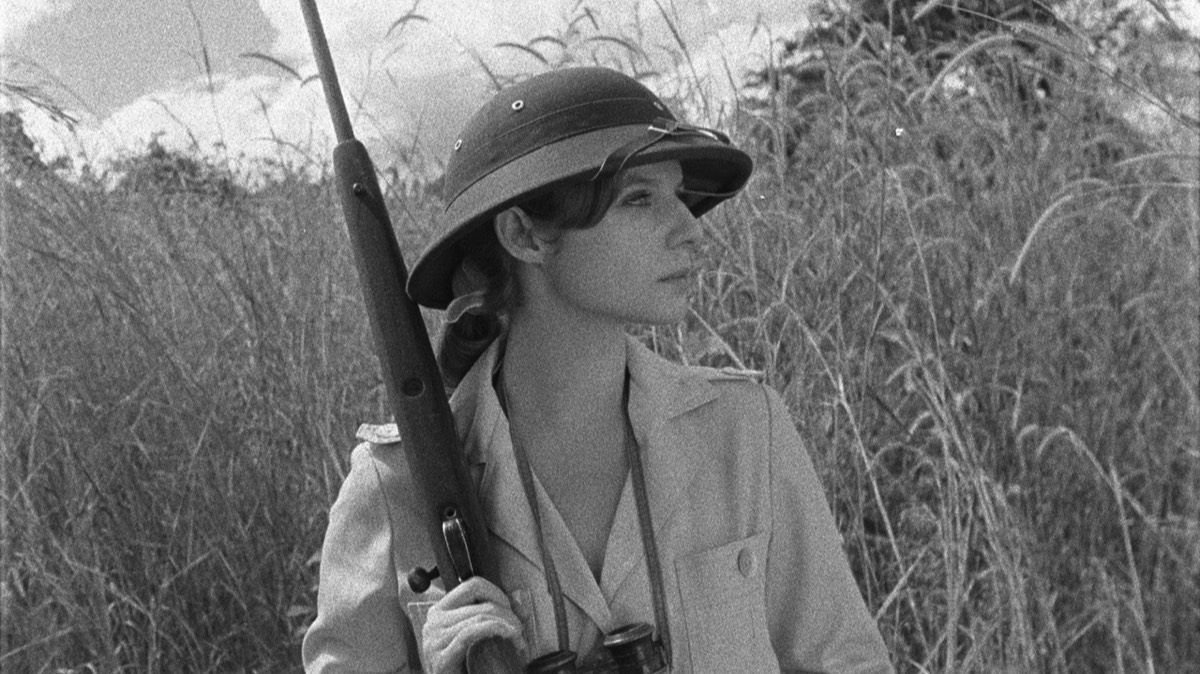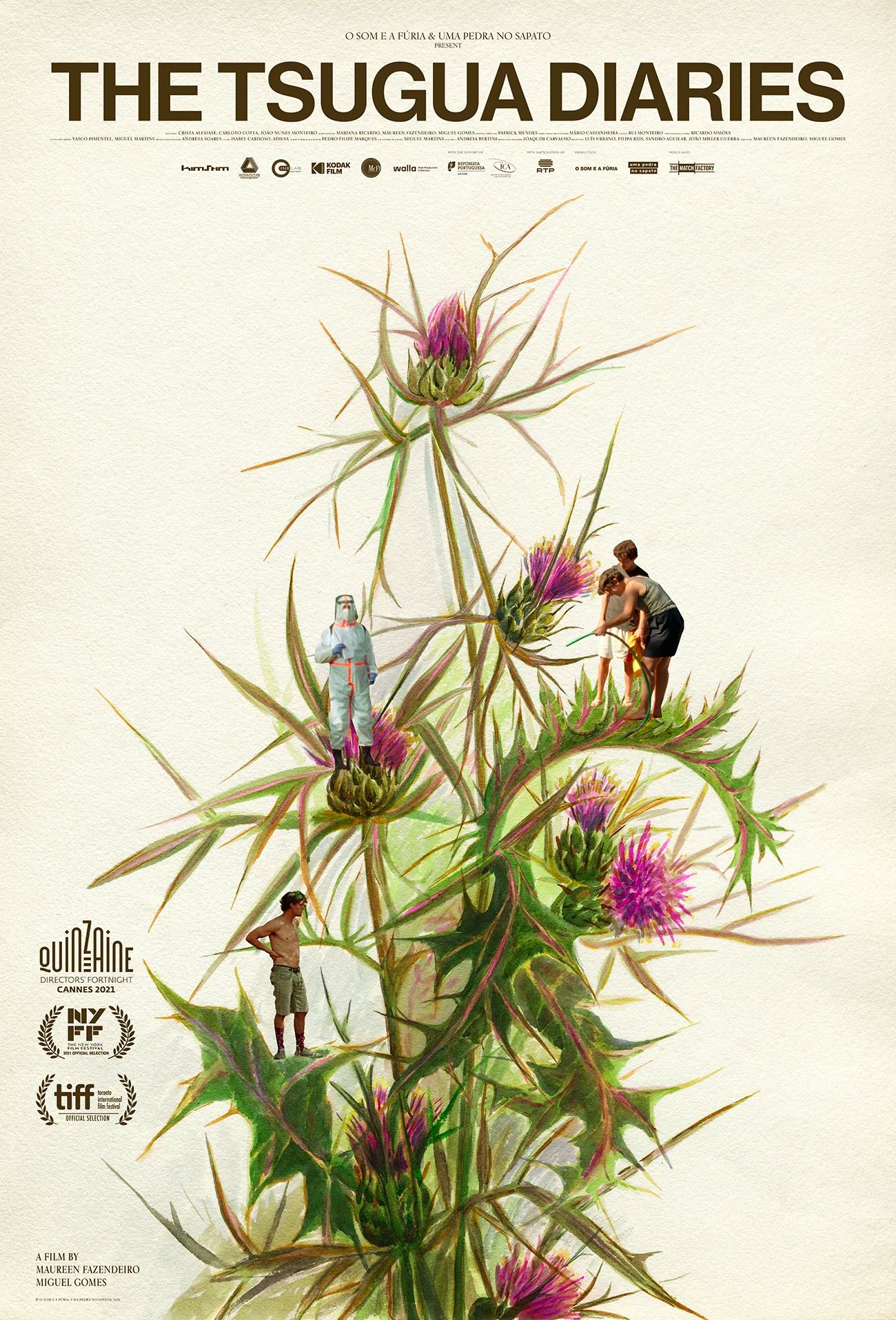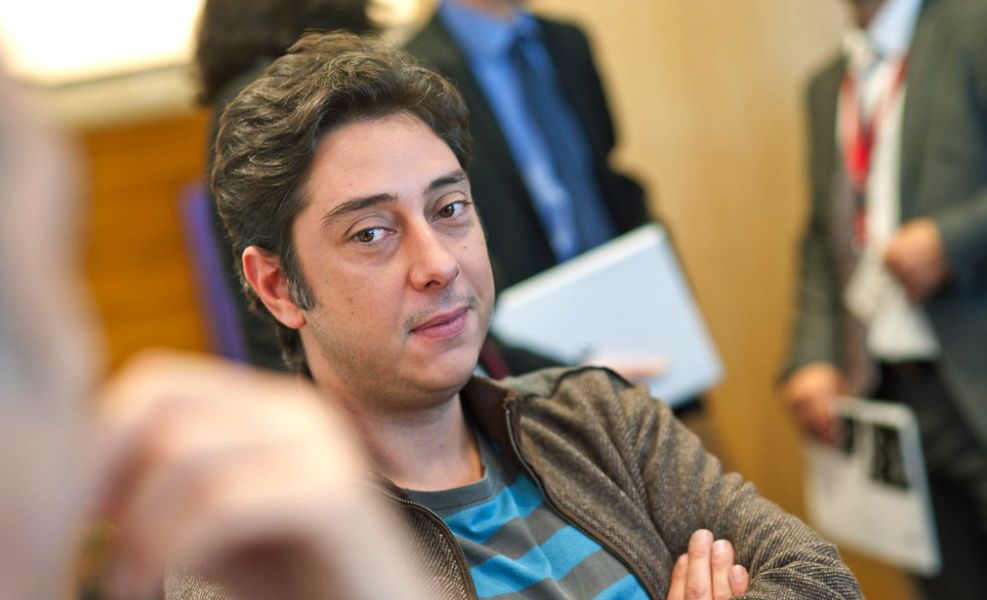"Many current filmmakers make hybrid films or so-called documentary fictions, but the Portuguese director Miguel Gomes may be the most baroque in dreaming up new ways to combine the factual and the fantastic. One attribute of his cinema is its denial of categories. Another is the degree of self-reflexivity: to watch his films to think about how they were made." - J. Hoberman (The New York Times, 2015)
Miguel Gomes
Director / Screenwriter / Editor
(1972- ) Born February 20, Lisbon, Portugal
21st Century's Top 100 Directors
(1972- ) Born February 20, Lisbon, Portugal
21st Century's Top 100 Directors
Key Production Countries: Portugal, France, Germany, Switzerland
Key Genres: Drama, Avant-garde/Experimental, Musical Drama, Romantic Drama, Essay Film
Key Collaborators: Mariana Ricardo (Screenwriter), Sandro Aguilar (Producer), Luís Urbano (Producer), Telmo Churro (Screenwriter/Editor), Thomas Ordonneau (Producer), Carloto Cotta (Leading Character Actor), Bruno Duarte (Production Designer), Crista Alfaiate (Leading Actress), Pedro Filipe Marques (Editor), Artur Pinheiro (Production Designer), Américo Silva (Character Actor), Sayombhu Mukdeeprom (Cinematographer)
Key Genres: Drama, Avant-garde/Experimental, Musical Drama, Romantic Drama, Essay Film
Key Collaborators: Mariana Ricardo (Screenwriter), Sandro Aguilar (Producer), Luís Urbano (Producer), Telmo Churro (Screenwriter/Editor), Thomas Ordonneau (Producer), Carloto Cotta (Leading Character Actor), Bruno Duarte (Production Designer), Crista Alfaiate (Leading Actress), Pedro Filipe Marques (Editor), Artur Pinheiro (Production Designer), Américo Silva (Character Actor), Sayombhu Mukdeeprom (Cinematographer)
"What immediately comes to mind when confronted with the labyrinthine universe seen in each and every one of Gomes’ six shorts and two feature-length films is the credo of another renegade of international cinema: The organic amalgamation of what is usually known as fiction and non-fiction in the work of Werner Herzog, producing image-monuments filled with stories — some based on facts, some on lies — clearly has an echo in Gomes’ strange cinema." - Markus Keuschnigg (FIPRESCI, 2009)
"After starting his career as a film critic, from 1999 Miguel Gomes directed a series of short films, followed by his first feature film in 2004, La Gueule que tu mérites. His fame grew internationally in 2012 with his film Tabu, which won the Alfred Bauer Prize at the Berlin Film Festival. Two years later, his ambitious trilogy of The Arabian Nights borrowed the structure and form of the tale and transposed it with acerbic irony to Portugal between July 2013 and August 2014, when the country was ravaged by austerity policies. Drawing on popular imaginaries, his works are marked by the blurring of documentary and fiction that defines his style as a whole." - Palais de Tokyo

Tabu (2012)
"In recent years Portugal has reemerged as an exciting new destination on the ever-shifting and always unpredictable map of world cinema, an important center for some of the most innovative currents in contemporary filmmaking. Relatively new to the scene is Miguel Gomes, who has joined Pedro Costa and João Pedro Rodigues as an artist similarly committed to exploring and expanding the deep-rooted tradition of Portuguese radical cinema defined earlier by Paulo Rocha, João César Monteiro and the still incredibly active and inspirational Manoel de Oliveira." - Harvard Film Archive (2010)
"He first earned acclaim for his 2008 feature, Our Beloved Month of August, which cleverly mixed fiction and documentary while telling of rural folk traditions in Portugal. His follow-up, Tabu, a rhapsodic, romantic melodrama viewed through all manner of obscure and fanciful angles, made him a household name among cinephiles." - David Jenkins (Little White Lies, 2016)
"Miguel Gomes, a Portuguese filmmaker, has carved a unique niche in the world of cinema with his distinctive storytelling and directorial approach. He is most renowned for his ability to blend reality with fiction, often weaving together historical and contemporary narratives. Gomes’ films are celebrated for their whimsical yet profound explorations of socio-political contexts, often underpinned by subtle humour and a poetic visual style… His works often reflect a deep engagement with Portugal’s history and culture, subtly critiquing contemporary societal and political issues. The use of non-professional actors alongside professionals in many of his films adds an intriguing layer of authenticity and unpredictability." - Bronze Screen Dream
"A Gomes film is likely to evoke numerous cinematic comparisons, but also comprises wild shifts in tone, a characteristic traceable to a keen yet impatient intelligence." - Mark Peranson (Cinema Scope)
"I confess that I spend a lot of time trying to relinquish control on set, to create conditions in which there’s room for the unexpected. I see that as necessary. This can mean drinking gin before shooting, or setting myself challenges or constraints." - Miguel Gomes (Time Out, 2016)
Selected Filmography
{{row.titlelong}}
Miguel Gomes / Favourite Films
Doomed Love (1978) Manoel de Oliveira, Heaven's Gate (1980) Michael Cimino, Nouvelle vague (1990) Jean-Luc Godard, The River (1951) Jean Renoir, Smoking/No Smoking (1993) Alain Resnais, The Sun Shines Bright (1953) John Ford, Tabu (1931) F.W. Murnau, The Testament of Dr. Mabuse (1933) Fritz Lang, Today We Live (1933) Howard Hawks, Wind Across the Everglades (1958) Nicholas Ray.
Source: Sight & Sound (2022)
Doomed Love (1978) Manoel de Oliveira, Heaven's Gate (1980) Michael Cimino, Nouvelle vague (1990) Jean-Luc Godard, The River (1951) Jean Renoir, Smoking/No Smoking (1993) Alain Resnais, The Sun Shines Bright (1953) John Ford, Tabu (1931) F.W. Murnau, The Testament of Dr. Mabuse (1933) Fritz Lang, Today We Live (1933) Howard Hawks, Wind Across the Everglades (1958) Nicholas Ray.
Source: Sight & Sound (2022)
Miguel Gomes / Fan Club
David Jenkins, Robert Koehler, Nick Davis, Catherine Bray, Tim Robey, Richard Brody, Andréa Picard, Guillaume Brac, Chris Boeckmann, Jordan Cronk, Raúl Camargo Bórquez, Firat Yücel.
David Jenkins, Robert Koehler, Nick Davis, Catherine Bray, Tim Robey, Richard Brody, Andréa Picard, Guillaume Brac, Chris Boeckmann, Jordan Cronk, Raúl Camargo Bórquez, Firat Yücel.
"Fan Club"
These film critics/filmmakers have, on multiple occasions, selected this director’s work within film ballots/lists that they have submitted.
These film critics/filmmakers have, on multiple occasions, selected this director’s work within film ballots/lists that they have submitted.


